By Sue Ridgeway
Fabrics are fundamental to interior design, and we tend to use them to create feeling, emotions, interest, and sales. One might even say it’s the unsung hero in interior design. Think about it: when someone says, “interior design,” what immediately comes to mind? Furniture, lighting, maybe paint color? Rarely do civilians (aka non-interior designers) think of fabrics, which is really a shame when you consider the fundamental role fabrics play in interior design.
Fabrics can add color, texture, and “feeling” to a room. And a large part of a professional interior designer/model merchandiser’s job is to create designs that help evoke a feeling for the prospective buyer. Fortunately, fabrics come in so many different color and texture options, the design opportunities are almost endless. At its core, fabrics are fundamental to all interior design.
As an overview, here are some fundamentals regarding fabrics and when/where our designers tend to use them, and how they can help sell your product:
Textures
Using cottons, linens, wools, and rope translates to a feeling of health, wellness, safety, and comfort. Just as in nature at its best, these fabrics work together to create a palette of touch that responds to our instinct for all that is real. Right now, people are looking for the authenticity of what makes their world have meaning and responds to their need for comfort and sanctity in their home. Think of neutral rooms with a myriad of textures that embrace all senses, an environment you want to touch and sit in. The more time a buyer stays in a room, the more likely they attach to the space, the more motivated they become to never leave that home.
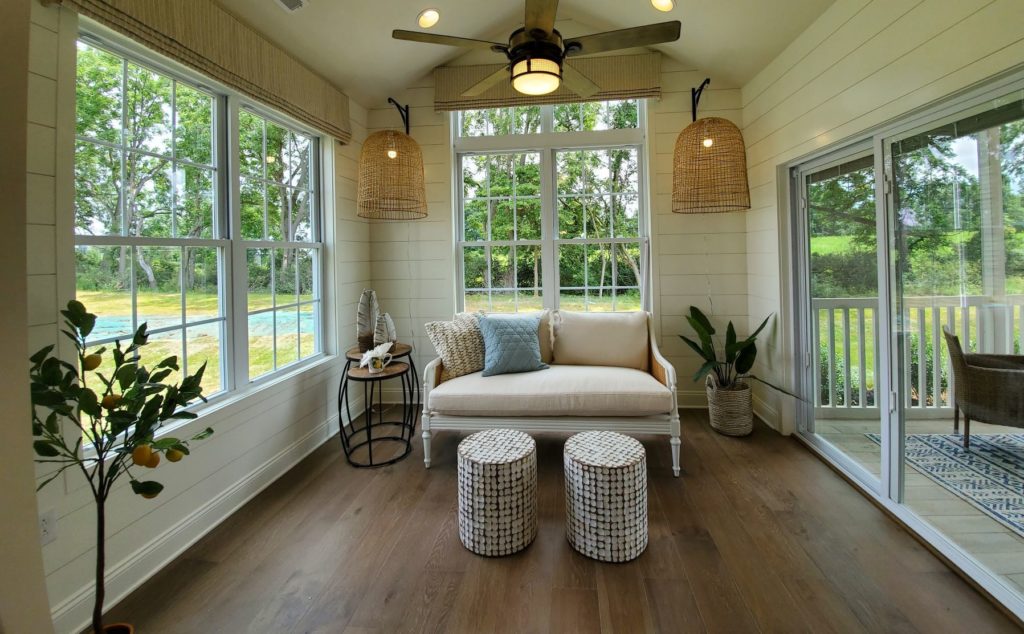
Shine & Sparkle
Shiny, sparkly, and other worldly textures add the dream of the unexpected. The idea of taking a chance, adding a smile, creating excitement and maybe even a feeling of temptation into a person’s perspective. When looking at a model, a buyer doesn’t want to see what they already have, they want to find a new experience. They are looking for the potential of discovering a wonderful opportunity for themselves and their families. These stimulating fabrics work best in conjunction with other more conservative choices. They bring the energy to the word dull and the power of fun to the everyday room or space. It could be a single pillow in a chair or the pop of pizzazz on a bed. They are the steam engine that produces the energy of a new beginning. Use these incredible fabrics wisely and they just might be the hallmark to bring the next sale to the table.
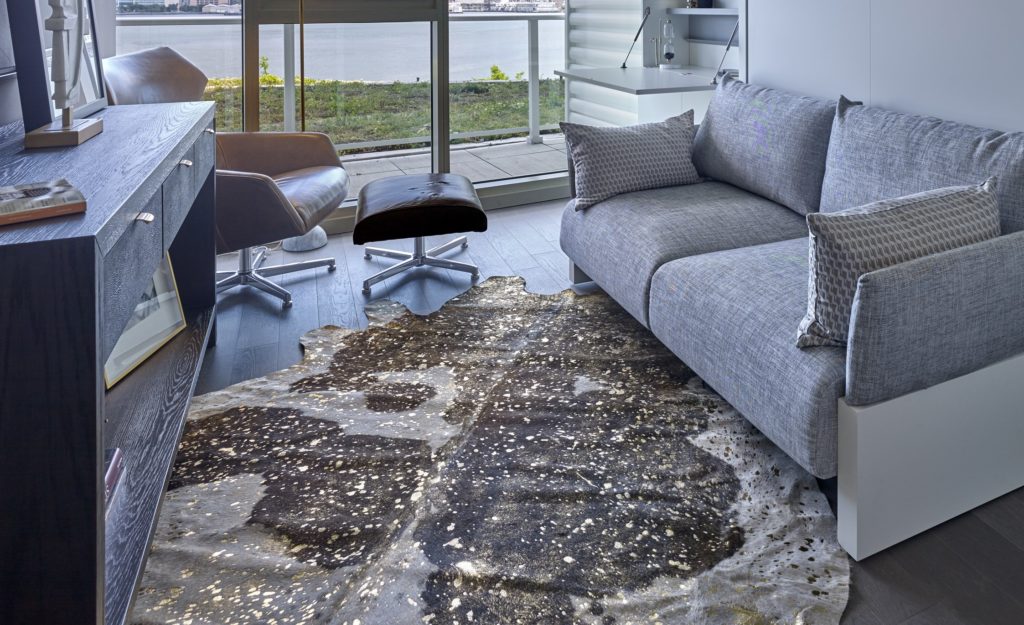
Velvets
Velvets, silks, and mohair give a touch of unlimited luxury. The sense of exquisite touches, special moments and full on pampering. These fabrics give the trusted embrace of being special. Used on a stand-alone chair, the richness of color and feel bring the added elegance to bridge the gap between unexpected comfort and luxurious living to life. Including these special touches to other more casual fabrics can add the elegance in an unexpected delight. The right balance of fabrics can make sure your model home doesn’t feel too stiff, stuffy, or too all important to really be lived in and enjoyed. Creating the sense of “I’ve arrived” doesn’t have to be only used in your luxury product but in smaller homes too. Because doesn’t everyone want to feel as though they have “arrived”? Using these fabrics helps to illicit the desired experience that embraces lovely, elegant, and welcoming at the same time.
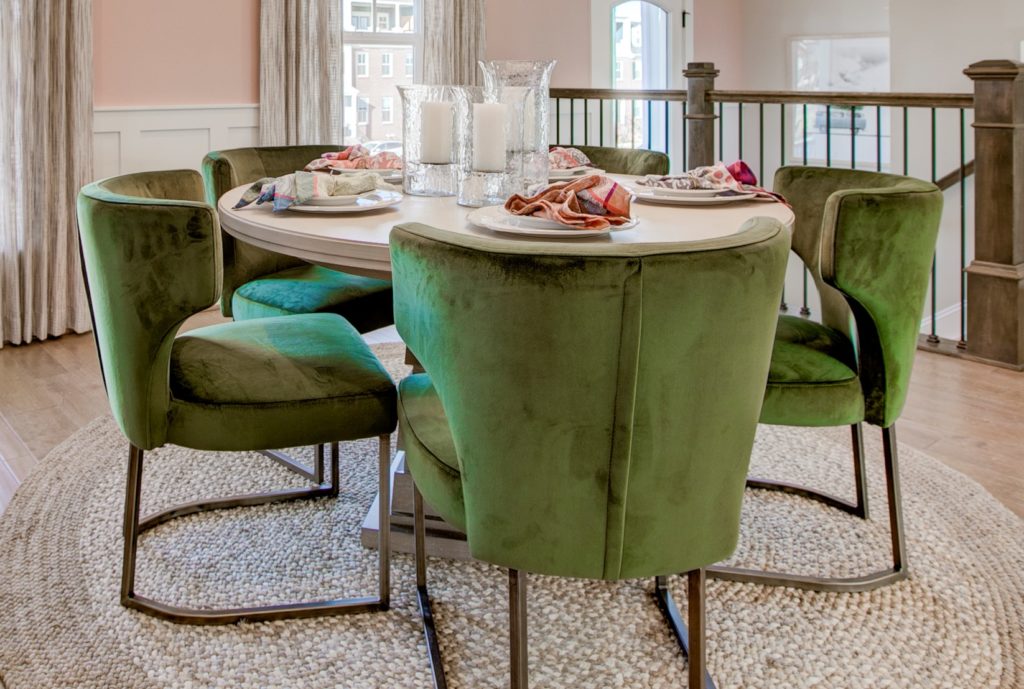
Leather
Leather is a fun fabric to incorporate into our designs as it isn’t a “shy” fabric, and definitely sets the tone of a room. It adds a rich feel, and we often use leather in flex rooms and offices. But, using leather in an urban condo bedroom may fulfill a dream environment when balanced with softer fabrics, creating a space of yin and yang – a perfect match for a glorious effect of new modern fun.
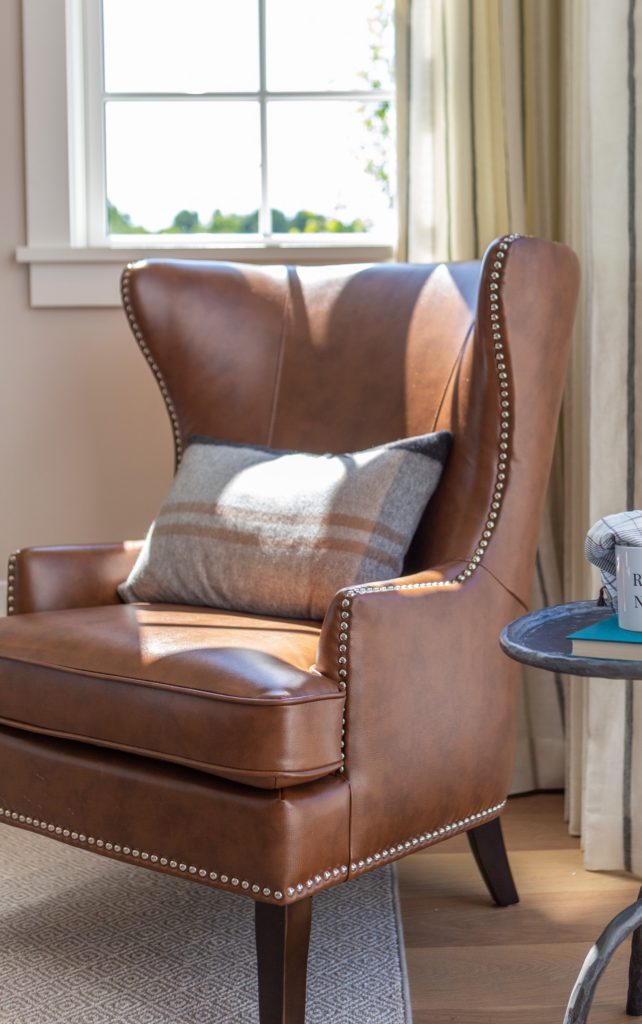
Patterns & Solids
Patterns and solids create a background to new stories and different styles. As trends adjust and change, so does the use of patterns and solids. Currently, patterns are best used in moderation with solids of various fabrics to balance the pattern. Letting the pattern be a background on the wall (as in a drapery) or a few interesting pillows on a sofa is all it takes to make a fun or memorable statement. Patterns don’t always mean a graphic, floral, or a picture. Sometimes the pattern is a part of the fabric itself. It could be in the weave or the texture that defines the effect like a pillow or a throw. Perhaps it’s that one item that might be enough to establish the winning connection between the buyer and the home.
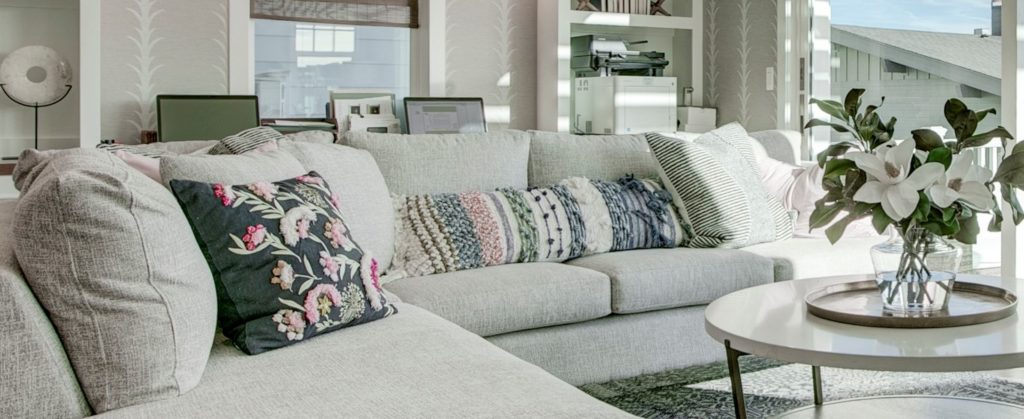
There are many tools we can use to sell a home from floor plans, to finishes, to fabrics. Each tool has its advantages and its limitations. Fortunately, fabrics are extraordinarily versatile and can be a powerful design tool, and one that is fundamental to interior design and model merchandising efforts.
Post courtesy of Sue Ridgeway, Director of Marketing at Lita Dirks & Co., an interior design and merchandising firm based in Greenwood Village, Colo.
Follow Lita Dirks & Co. on Instagram, Facebook and LinkedIn for more interior design ideas and inspiration.

